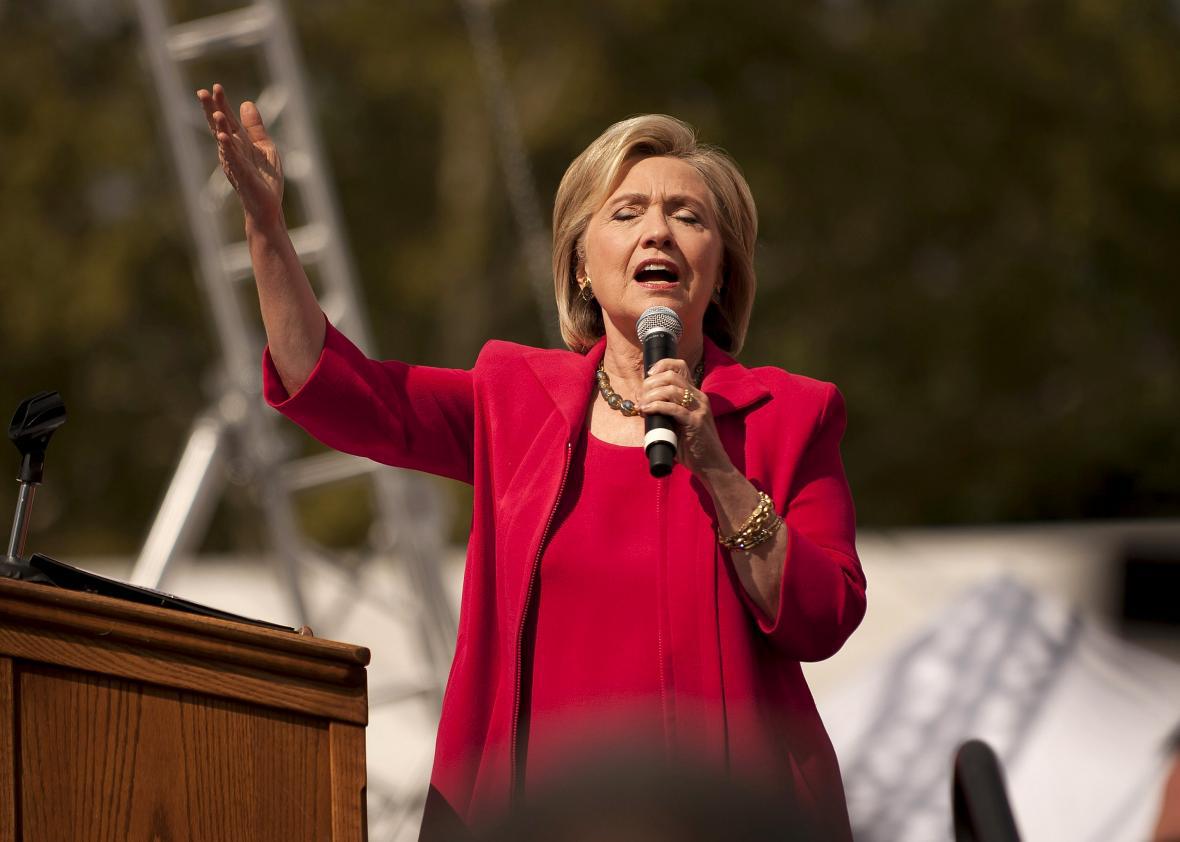Hillary Clinton spent the beginning of her campaign doing everything she could to avoid the perception that she believed her nomination was inevitable. But with Bernie Sanders continuing to draw massive crowds and the Beltway buzzing about the possibility of a late challenge from Joe Biden, Clinton’s camp is finally changing its tune.
Earlier this week, her allies gave Politico a sneak peek at the campaign’s long-term primary strategy, one that includes what the outlet dubbed a “Super Tuesday firewall.” The message from Clinton-land was clear: Even if she stumbles out of the gates in Iowa or, much more likely, New Hampshire, Hillary won’t only survive, she’ll still be ready to deliver a knockout blow to Sanders by March 1, when 11 states—including delegate-rich Texas and Virginia—hold their nominating contests. “If it works,” Politico reported, “the former secretary of state will have wrapped up the party’s nomination before spring ends—with only 32 states and two territories having voted—thereby avoiding the kind of protracted battle that consumed much of 2008.”
Clinton’s muscle-flexing continued on Friday, with her senior advisers telling Bloomberg she has already secured 440 of the roughly 700 superdelegates who will be invited to the Democratic National Convention next summer. The total number of delegates who will decide the nomination is expected to be roughly 5,000—the vast majority of which will be selected by next year’s primaries and caucuses—but the 440 figure nonetheless represents about one-fifth of the delegates Clinton will need to claim the nomination. That’s a rather significant head start for a candidate who already has massive fundraising and organizational advantages over her rivals.
As Hillary knows better than most, there’s nothing preventing a superdelegate from pledging his support today and changing his mind tomorrow—but that hasn’t stopped her camp from effectively shouting “scoreboard” with the first official nominating contest still five months away.
The campaign’s new power pose makes sense. Earlier this year, Clinton was pretending to sweat to avoid looking like she was coasting to her party’s nomination. But now that the heat is on she’s eager to look calm, cool, and collected. There are plenty of good reasons to believe she really is—her current 20-point lead in national polls chief among them—but with her email scandal continuing to dog her campaign and with Biden weighing his options, more important than being confident is looking confident. And reminding her allies and enemies of all her organizational advantages will help her do just that.
